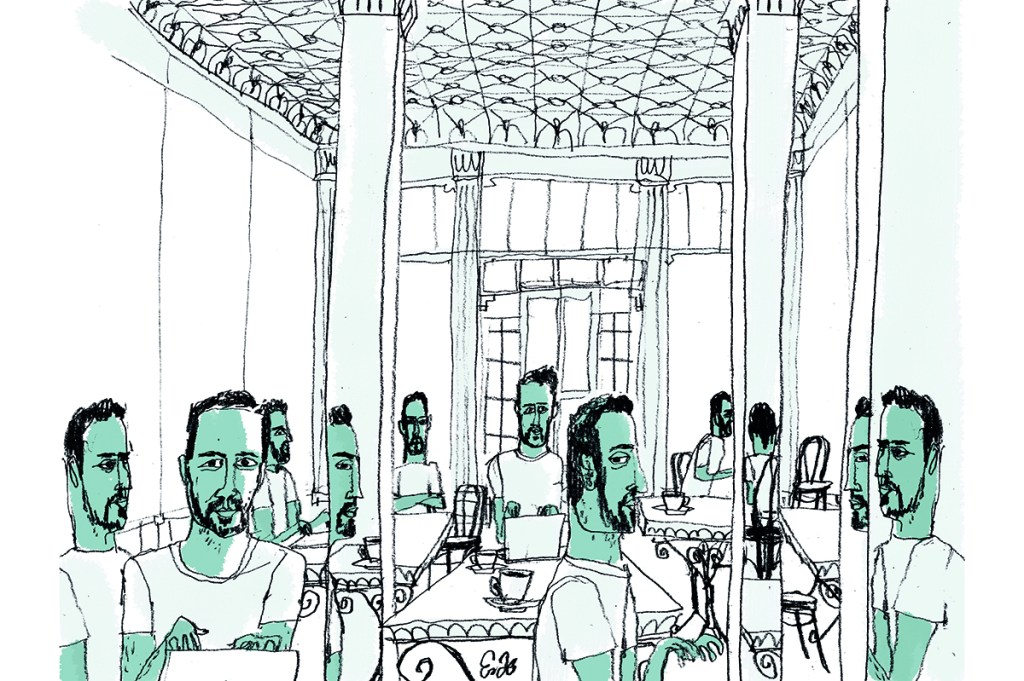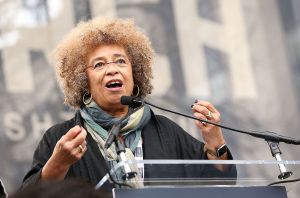A development has reshaped the world of letters. The literary universe is no longer a boys’ club but the playground of woke Brooklyn ladies who’ve swallowed up editorships and literary-agent gigs. The results continue to be predictable: a constant bombardment of books from elite white women about the travails of neurotic Brooklyn ladies, and victim narratives about brown suffering.
The fetishization of people of color has come to define the woke relationship with so-called marginalized communities. Virtually every literary book — except for those based in Brooklyn — details the struggles of a victimized minority. The Booker Prize longlist or the National Book Award finalists will annually bombard you with weepy tales of generational POC suffering. “So-and-so is a descendant of African slaves and is oppressed by the white supremacist capitalist American machine.” Or: “a Mexican poor boy crosses the border, only to end up working as a dishwasher in New York City, where, as always, the white supremacist capitalistic American machine” — this spectral force is the main antagonist in nearly all POC fiction — “exploits him.”
Do these books sound like they exist? If they aren’t out yet, they soon will be, though perhaps with slightly more subtle back-jacket summaries, because woke “literary” types demand a continuous stream of tear-inducing tales of brown suffering. In their world, brown people cannot experience levity or good fortune, and their publishing choices corroborate this belief.
The women who fetishize brown suffering are surely to blame for the insidious proliferation of POC victim narratives, but what often goes unsaid is that authors who identify as people of color are sometimes eager to allow themselves to be tokenized. The publishing industry facilitates this self-induced tokenism, but the elite writing world perpetuates the idea that POC writers are only authentic — and publishable — if they traffic in predictable victim narratives.
Pick up any university-funded literary journal and you’ll find hackneyed stories about some sad abuelita cooking empanadas and reminiscing about her days before she was a tortured cleaning lady or yet another victimized “black or brown body” debilitated by America. The POC victim narrative is a systemic problem, and until minority writers demand more from themselves and their stories, the trend will continue. But can these supposedly marginalized writers help themselves?
A recent University of Florida Press publication, Home in Florida: Latinx Writers and the Literature of Uprootedness, highlights the symbiotic relationship between editors and the POC writers who ghettoize themselves for the chance to appear in an obscure anthology. The title epitomizes this relationship because it establishes the language of wokeism (“Latinx”) and leaves no doubt as to the type of POC stories that will be contained within — victim tales of “uprootedness.”
To the woke white ladies, it is a sheer impossibility that a POC writer will experience anything other than “uprootedness” or displacement, and the good little tokens will happily oblige, sprinkling in italicized words in their foreign languages and dutifully finishing every story with some trite epiphany about the purity of the homeland or whatever.
As a POC literary writer from Florida, this book is of particular interest because it speaks both to tokenism and the assumption that all black and brown writers feel “marginalized.” The irony of books like Home in Florida is that the authors in its pages have been mostly educated at MFA programs and reside in the cozy confines of academia. Perhaps many of these supposedly marginalized writers with their litany of academic credentials and awards feel genuine dislocation, but can every non-white writer really be a displaced victim? Junot Díaz, who established himself with his short story collection Drown in 1996, is a POC writer who played up his victimized status but still published stories that had nothing do with the deleterious effects of “whiteness.” The characters in Drown were revolutionary because they had agency and weren’t mere victims to the machinations of white antagonists. Its protagonists were laid low not by systemic oppression but by their testosterone and moral failings. Díaz would go on to win the Pulitzer Prize for his debut novel, and though he eventually embraced tokenism as the publishing industry transformed, his early stories show that POC writers can write slice-of-life stories that have nothing to do with oppression or the inescapability of whiteness.
The real victims in this scenario are the POC writers whose literary and stylistic interests don’t align with the popular woke narratives that place oppression and anti-Americanism at the forefront of every story. Perhaps a black writer who grew up in the inner city, for instance, wants to write about that experience without resorting to woke literary conceits. If this writer were to somehow attend an MFA program or land an agent, he’d quickly find out that his work is “problematic” because he’s failed to properly ghettoize himself. He’d then be asked to introduce a white villain or a systemically oppressive framework into his story. That is a tragedy, both for literature and for its practitioners.
This article was originally published in The Spectator’s March 2022 World edition.

























